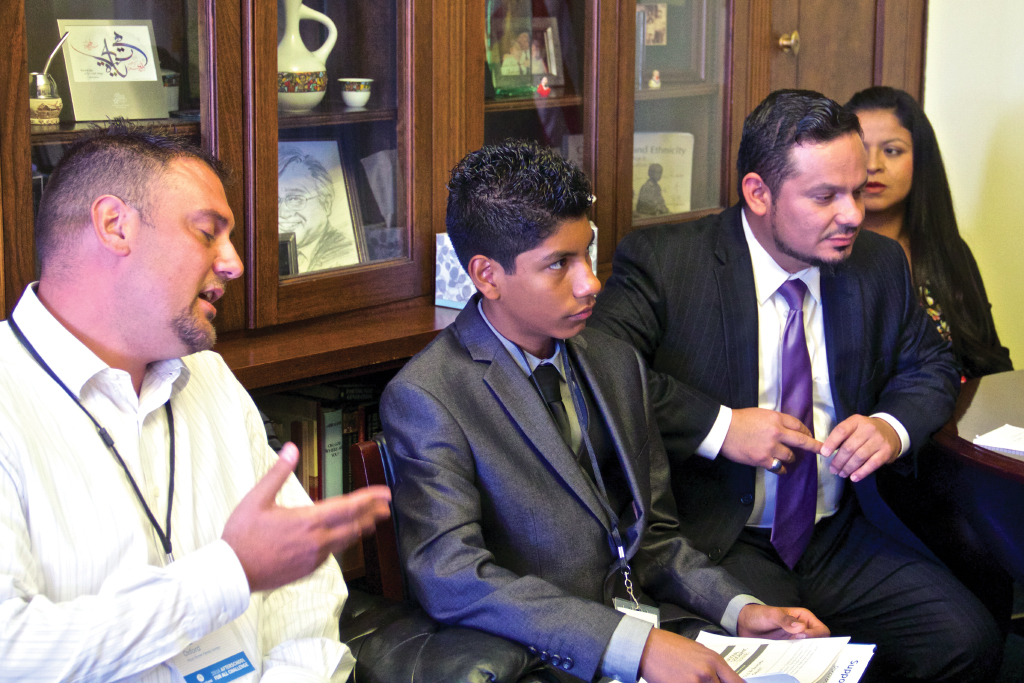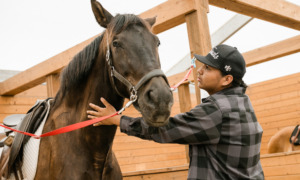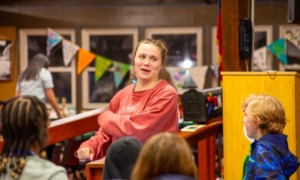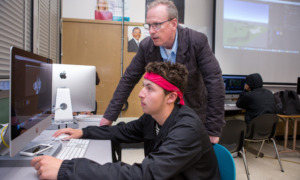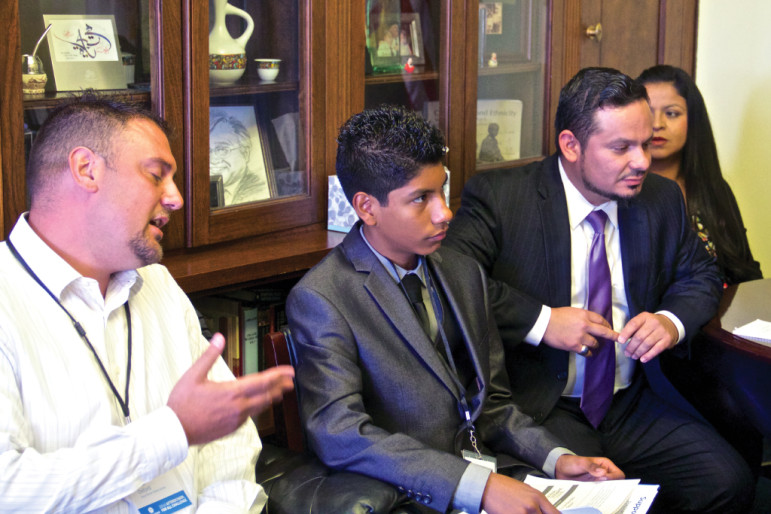
Wes Bruer
Donovan Hernandez, along with representatives of the Hope Street Foundation, meets with the staff of Rep. Mike Honda to discuss the importance of after-school programs.
WASHINGTON — Surging demand for out-of-school programs far exceeds supply and advocates are asking lawmakers to boost the budget this fall.
“Every day when the [final] school bell rings, more than 15 million of our students go home unsupervised – 15 million of our students,” said Jodi Grant, executive director of the Afterschool Alliance.
The lobbying effort kicked off in May when youths such as Donovan Hernandez brought his firsthand expertise on after-school programs to congressional staffers on Capitol Hill.
Donovan, 12, described how his after-school program, part of the Hope Street Family Center in downtown Los Angeles, has been a lifeline for him and his family.
At Hope Street, which opened in 1992, his mother is learning to speak English, and his little brother receives occupational and speech therapy and participates with Donovan’s sister in dancing and singing.
For his part, Donovan, a seventh-grader, likes the educational components of Hope Street and discovered he loves running after joining the program’s running club three years ago. In March, he completed the Los Angeles Marathon.
Donovan said the program — made possible by a partnership between the California Hospital Medical Center, the University of California-Los Angeles and community residents — provides a safe haven for participants in a neighborhood plagued by gangs and violence.
The program offers middle school students homework assistance, academic support in math, reading and writing, one-on-one tutoring and mentoring, and career and college workshops. Along with the running club, recreational activities include volleyball, basketball, yoga and dance classes, while students and their families receive health and social services.
“Hope Street Family Center provides hope for everyone,” Donovan said at the May gathering, kicking off a day when advocates for out-of-school-time (OST) programs lobbied congressional staffers for more funding for such programs nationwide.
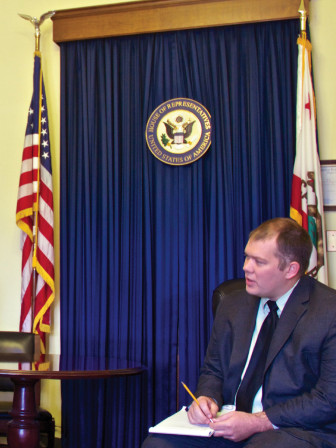
Wes Bruer
Rep. Mike Honda’s aid Shawn Tiegs discusses after-school programs on lobbying day.
The annual lobbying day, organized by the Afterschool Alliance, a Washington-based nonprofit, brought more than 250 OST advocates from 46 states to the nation’s capital. There, they made their case in meetings to Congress — mostly to congressional staff, but in some cases to the lawmakers themselves.
Those advocating for OST programs included 40 youths from nine states. Among them: Donovan, who, along with the California contingent, met with staffers for six members of Congress and with one member, Rep. John Garamendi (D-Calif.)
“Your presence here today is incredibly important — your voices, the voices of the people on the ground, perspectives of philanthropists, corporate leaders, state and city officials, childcare and after-school education experts and the kids themselves: They are powerful, they are persuasive and they are genuine,” said Grant of the Afterschool Alliance.
“Children in quality after-school programs are more likely to come to school and stay in school. They get better grades, and they have fewer behavior problems,” Grant said. “The after-school approach — hands-on, engaged and kid-centered — helps children develop into competent, empathetic, resilient problem-solvers. Our programs give hard-working parents peace of mind, knowing that the kids are not only safe but also inspired and learning while they’re still at work.”
Since the recession, the number of children without after-school programs has grown, while budget cuts have forced programs to reduce services and staff or close, Grant said.
“We cannot afford to lose these programs. Now more than ever, they are needed by our students and our families,” Grant said, echoing the sentiments of other OST advocates at the event, including several members of Congress.
Nationwide, the Afterschool Alliance reports, 8.4 million children now participate in OST programs, but the parents of another 18.5 million children say their kids would participate if a program were available.
The Afterschool Alliance has identified the after-school time between 3 p.m. and 6 p.m. as the peak hours for juvenile experimentation with drugs, alcohol, cigarettes and sex. Teens not involved in after-school programs are nearly three times more likely than participants to skip classes and to use marijuana or other drugs, according to the Afterschool Alliance.
The 21st Century Community Learning Centers (CCLC) initiative offers the only federal money dedicated exclusively to supporting OST programs.
Erik Peterson, vice president for policy at the Afterschool Alliance, said in an e-mail the CCLC initiative is now funded at $1.149 billion per year, and the Alliance would like to see that increased by about $50 million, to $1.2 billion in fiscal year 2015, since demand for the federal funding far exceeds supply.
The federal money goes to state agencies, which then award grants through a competitive process. With the funding limits, between 2002 and 2010, only one in three applicants for CCLC funding received grants.
In theory, Peterson said, Congress should appropriate CCLC funds before the start of the new fiscal year, Oct. 1. But in the recent past, lawmakers have, instead, passed continuing resolutions that have put off funding decisions for months. Peterson said he expects to have a good idea of funding levels by December.
First-term Rep. Dan Kildee (D-Mich.), a former school board member in Flint, Mich., encouraged OST advocates before they fanned out to congressional offices on Capitol Hill.
“What you do every day in the programs that you run, in the programs that you support, the programs that you advocate for is you change the life, you change the trajectory of a life for one child at a time,” Kildee said.
“When you speak with the folks that you go visit, [the lawmakers], you speak with authority, you speak with experience, you speak representing people back home. Letters matter, sure, emails matter, absolutely, but there’s nothing like sitting in the office of a member of Congress and telling the stories about lives that you have changed. Nothing changes their minds and nothing affects policy more than that.”


